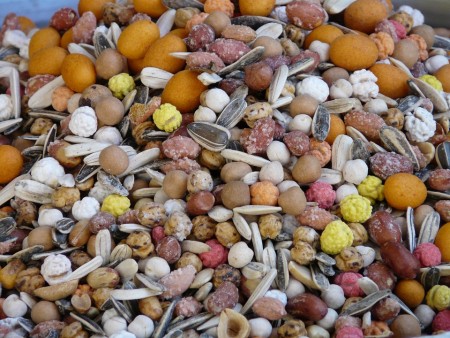Study Links Vitamin D, Type 1 Diabetes
Sun exposure and vitamin D levels may play a strong role in risk of type 1 diabetes in children, according to new findings by researchers.
One in Six Americans Have Pre-Diabetes and Most Don’t Know It
Fifty-four million Americans - that's one in six of us -- have pre-diabetes and most don't even realize it. Mark Schutta, MD, medical director of the Penn Rodebaugh Diabetes Center, is urging at-risk patients to be proactive and ask your doctor to give you a simple blood test for pre-diabetes - to arm yourself with information before the damage is done.
New Insights Into The Early Development Of Diabetes
A study provides new information on the early steps in the development of IR and suggests why insulin-resistant people easily gain weight.
Infections Can Increase Risk of Diabetes in Children
A recently published study details how a certain type of infection in infants is associated with a greater risk of developing type 1 diabetes. Viral...
Protein Adiponectin Appears Protective Against Heart Disease
Reduced blood concentrations of adiponectin appear to indicate a significant risk of cardiovascular disease in a study focusing on risk of the disorder among patients with Type 1 diabetes.
First Study To Show Cost-Effectiveness of Pre-Diabetes Intervention
Study is the first to show that it would be cost-effective for society to try to prevent diabetes in people with a condition known as "pre-diabetes," or impaired glucose tolerance.
New Study of Human Pancreases Links Virus to Cause of Type 1 Diabetes
A team of researchers has found that a common family of viruses may play an important role in triggering the development of diabetes, particularly in children.
High Rate of Overweight and Obesity Found in Children Having Surgery
A very high proportion of children who are having surgery are overweight or obese, and because of the excess weight have a greater chance of experiencing problems associated with the surgery, according to a new study.
Weight At Birth Tied to Heart Disease and Diabetes Risk
Lower weight at birth may increase inflammatory processes in adulthood, which are associated with chronic diseases such as heart disease and diabetes.
Photos Helping Researchers Understand Juvenile Diabetes
If a picture is worth a thousand words, UF Health Type 1 diabetes researchers and their colleagues have tapped into an encyclopedia, revealing new...
Protein Levels Could Signal That a Child Will Develop Diabetes
Decreasing blood levels of a protein that helps control inflammation may be a red flag that could help children avoid type 1 diabetes, researchers say.
Study: Bullied Kids More Likely to Be Obese, Develop Health Problems
Bullying may keep overweight children on the sidelines, making it more difficult for them to shed pounds.
People with Prediabetes Not Taking Adequate Precautions to Avoid Diabetes
Study published in the American Journal of Preventive Medicine revealed that only about half of U.S. adults with prediabetes reported that in the past year they tried to lose weight or exercise more.
Newly Identified Genes Influence Insulin and Glucose Regulation, 5 variants raise type 2 diabetes...
Researchers found 13 new genetic variants that influence blood glucose regulation, insulin resistance, and the function of insulin-secreting beta cells in populations of European descent. Five of the variants increase the risk of developing type 2 diabetes.
Experts: Greater Safety Review Needed for Insulin pumps
According to a joint statement by the American Diabetes Association and the European Association for the Study of Diabetes about the safety and efficacy...
Research Yields New Insights Into The Cause Of Diabetes
The cause of insulin-dependent, permanent, diabetes in newborn babies may be a deficiency in the enzyme Pancreatic Endoplasmic Reticulum Kinase (PERK) during a critical period of development before birth.








